Enterprise Resource Planning (ERP) software stands at the forefront of this transformation, offering businesses a robust solution to manage and streamline their operations. They have become indispensable, helping organizations enhance productivity, improve decision-making, and foster growth.
What is ERP Software?
Enterprise Resource Planning (ERP) software is a comprehensive suite of applications designed to integrate and manage core business processes in real time. It centralizes data and automates tasks across various departments, providing a unified system for functions such as finance, human resources, supply chain, and customer relationship management. Businesses implementing ERP systems often collaborate with specialized partners, including project management recruitment agencies, to ensure they hire skilled professionals who can manage implementation and oversee cross-departmental coordination effectively.
Key functionalities and modules of ERP systems:
- Finance and Accounting: Manages financial transactions, budgeting, and reporting.
- Human Resources (HR): Handles employee data, payroll, recruitment, and performance management.
- Supply Chain Management (SCM): Oversees procurement, inventory, and logistics.
- Customer Relationship Management (CRM): Manages interactions with customers, sales, and marketing activities.
- Manufacturing: Controls production planning, scheduling, and quality management.
- Project Management: Assists in planning, executing, and monitoring projects.
- Analytics and Reporting: Provides data analysis and reporting tools for informed decision-making.
Benefits of ERP Software
By automating routine tasks and providing real-time data access, ERP software reduces manual work, minimizes errors, and boosts overall productivity. Centralized data ensures consistency and accuracy across all departments, facilitating better analysis and informed decision-making.  ERP systems integrate various business functions into a single platform, streamlining processes and improving coordination between departments. As businesses grow, ERP systems can scale to accommodate increased workloads and additional functionalities, ensuring continued efficiency and support for expansion.
ERP systems integrate various business functions into a single platform, streamlining processes and improving coordination between departments. As businesses grow, ERP systems can scale to accommodate increased workloads and additional functionalities, ensuring continued efficiency and support for expansion.
Key Features to Look for in ERP Software
Choosing the right ERP software requires careful consideration of various features that will best meet your business needs. Key features to prioritize:
Customizability and Flexibility
The ERP system should be adaptable to your specific business processes and allow for customizations that cater to unique requirements. Flexibility in modules and functionalities ensures that the software can grow with your business.
Integration Capabilities with Other Systems
An effective ERP system should seamlessly integrate with existing software and third-party applications, such as CRM systems, e-commerce platforms, and accounting tools. This integration ensures a smooth flow of information across different platforms.
User-Friendly Interface
A user-friendly interface is essential for employees to have ease of use and quick adoption. Intuitive navigation, clear dashboards, and accessible features can significantly enhance user experience and productivity.
Strong Security Features
Protecting sensitive business data is paramount. Ensure the ERP software offers robust security measures, including data encryption, user authentication, and access controls to safeguard against data breaches and unauthorized access.
Support and Training Options
Comprehensive support and training options are crucial for successful implementation and ongoing usage. Look for vendors that offer extensive training resources, customer support, and regular updates to keep the system running smoothly.
Popular ERP Software Solutions in 2024
In 2024, several ERP software solutions emerged as top contenders, each offering unique features and benefits. Highest-rated ERP software solutions:
SAP S/4HANA
Real-time analytics, advanced AI capabilities, and extensive integration options.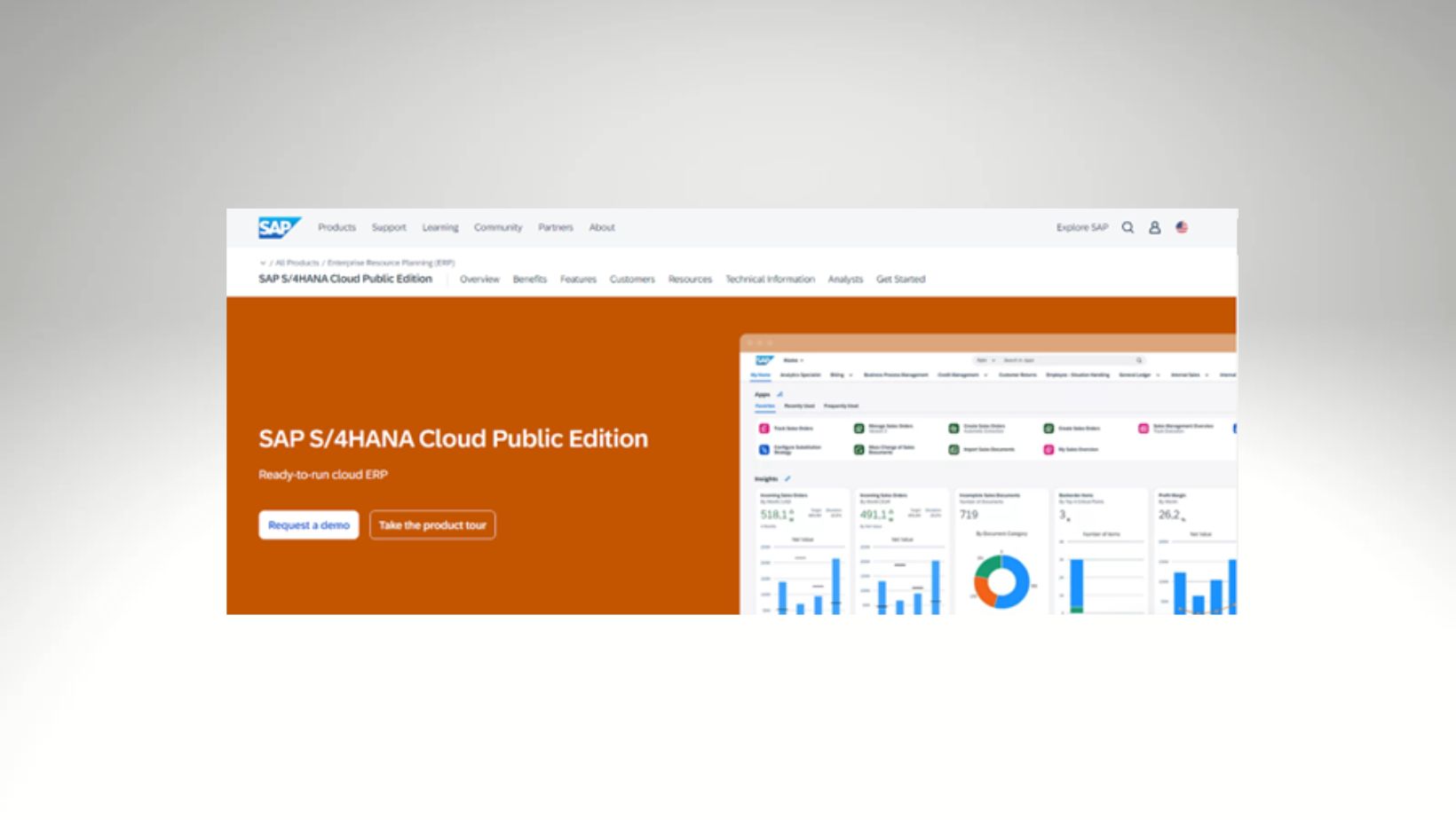
https://www.sap.com/products/erp/s4hana.html
SAP S/4HANA is a robust ERP solution known for its real-time data processing and advanced AI functionalities. It offers comprehensive modules for finance, supply chain, and human resources, making it suitable for large enterprises.
Oracle NetSuite
Cloud-based deployment, financial management, CRM, e-commerce integration.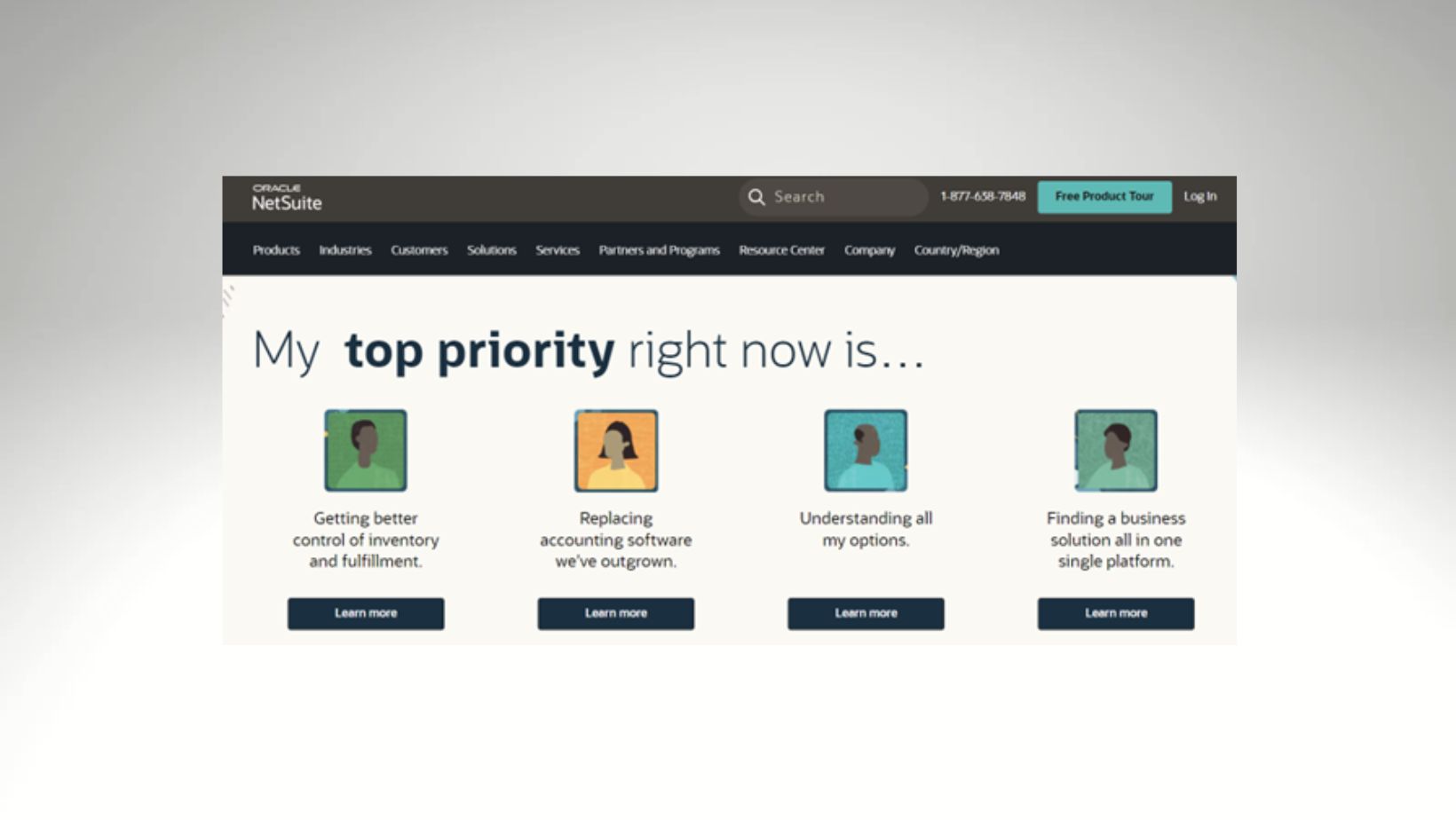
https://www.netsuite.com/portal/home.shtml
Oracle NetSuite is a cloud-based ERP system ideal for growing businesses. It provides strong financial management capabilities, CRM functionalities, and seamless e-commerce integration, ensuring a cohesive business operation.
Microsoft Dynamics 365
Scalability, extensive integration with Microsoft products, AI-driven insights.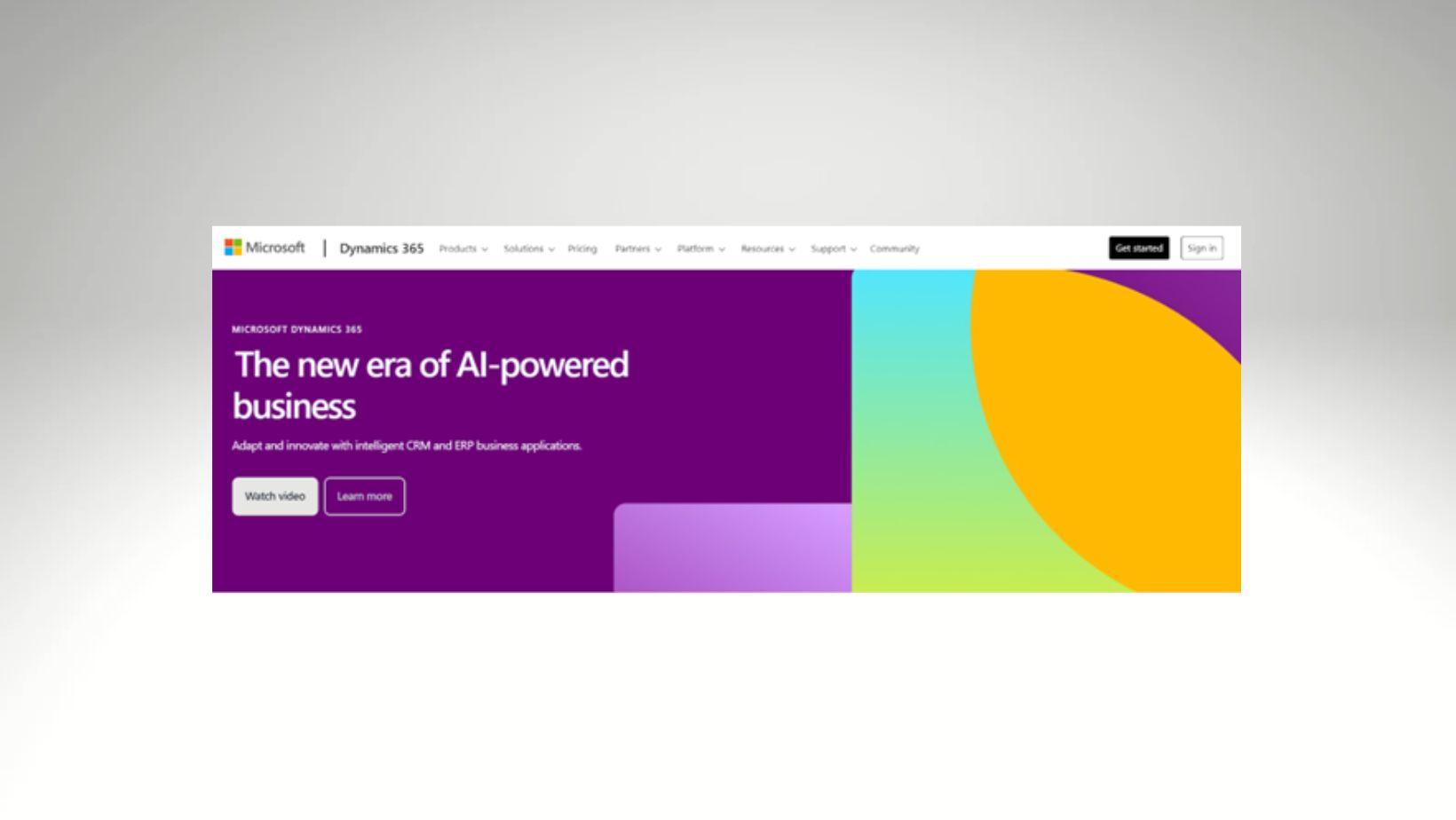
https://www.microsoft.com/en-us/dynamics-365
Microsoft Dynamics 365 offers a flexible and scalable ERP solution that integrates well with other Microsoft products. Its AI-driven insights help businesses make data-informed decisions and improve operational efficiency. With comprehensive Dynamics 365 integration, businesses can achieve efficient data flow and improve productivity across various departments.
Infor CloudSuite
Industry-specific solutions, cloud-based architecture, robust analytics.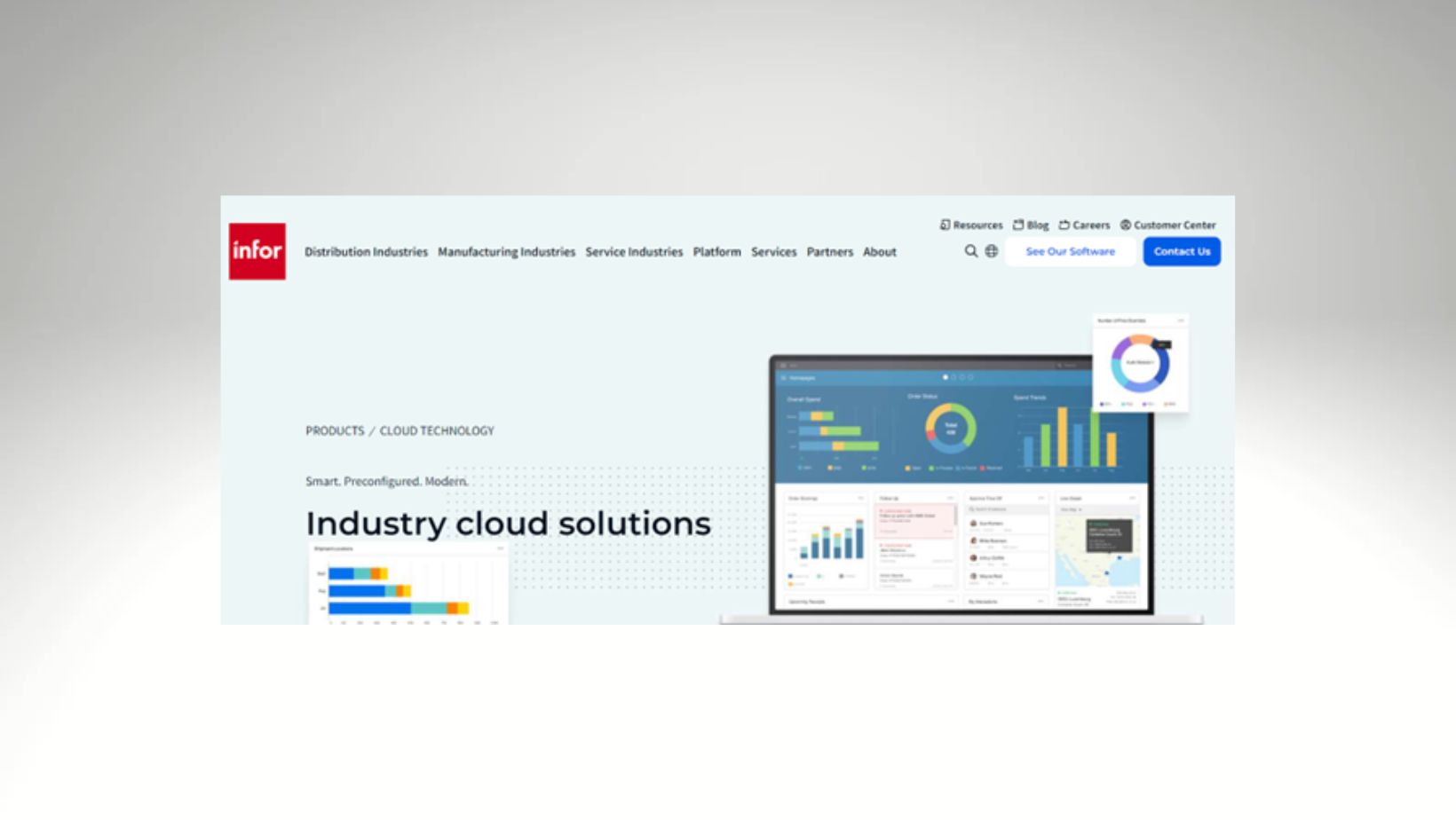
https://www.infor.com/products/cloud-strategy
Infor CloudSuite is tailored for various industries, offering specialized modules and robust analytics. Its cloud-based architecture ensures flexibility and scalability for businesses of all sizes.
Odoo
Open-source flexibility, modular approach, cost-effective.
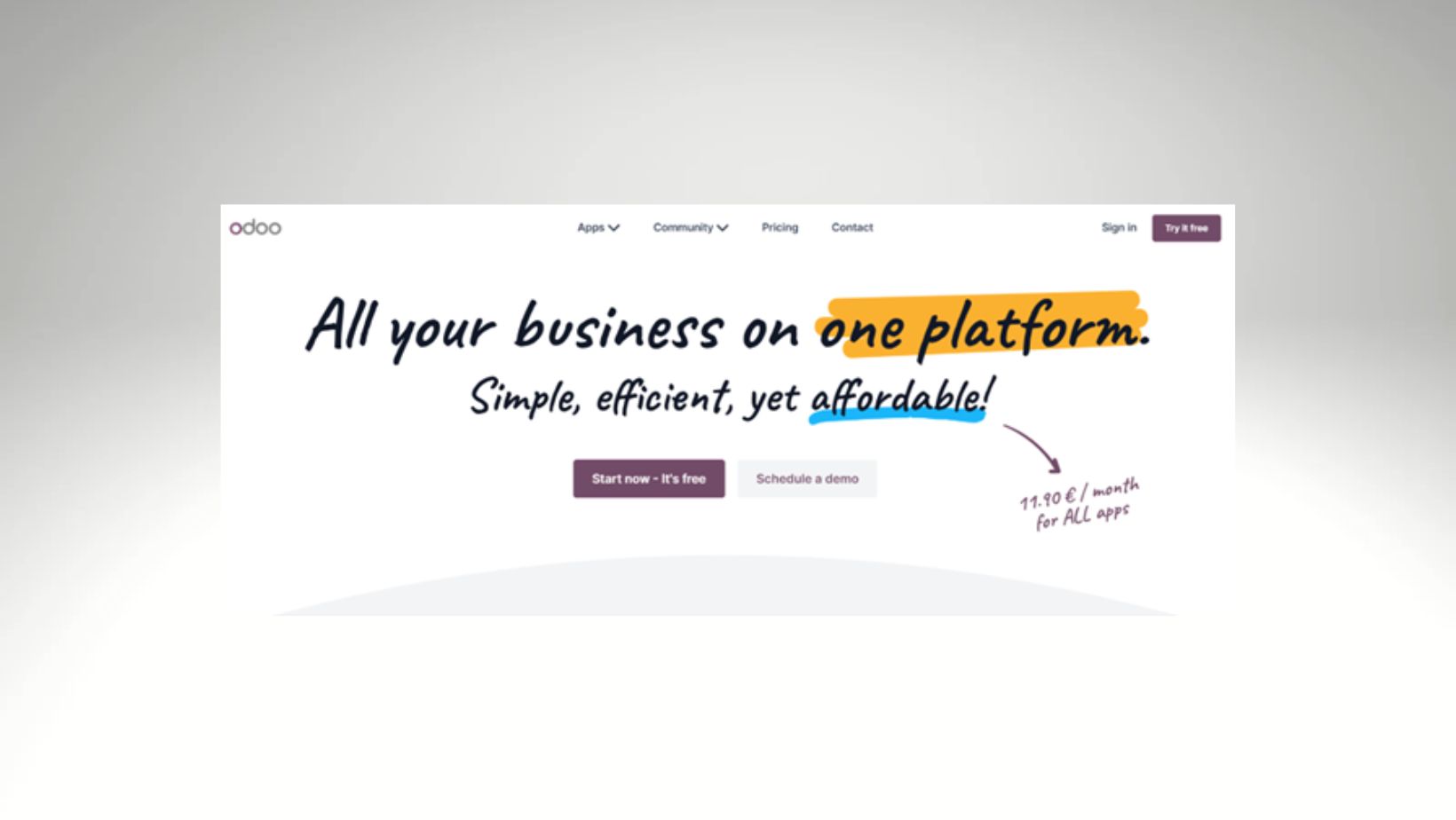 Odoo is an open-source ERP system known for its flexibility and modular approach. It is cost-effective and allows businesses to add functionalities as needed, making it suitable for small to medium-sized enterprises.
Odoo is an open-source ERP system known for its flexibility and modular approach. It is cost-effective and allows businesses to add functionalities as needed, making it suitable for small to medium-sized enterprises.
How to Choose the Right ERP Software for Your Business
Selecting the best ERP software for your business involves several critical steps:
- Assessing Your Business Needs: Evaluate your business processes and identify the specific needs that an ERP system should address. Consider factors such as the size of your business, industry requirements, and growth plans.
- Budget Considerations: Determine your budget for ERP implementation, including initial setup costs, licensing fees, and ongoing maintenance expenses. Ensure the chosen solution provides the best value for your investment.
- Evaluating Vendor Reputation and Support: Research vendors’ reputations, customer reviews, and support services. Opt for vendors with a strong track record of successful implementations and reliable customer support.
- Importance of Scalability and Future-Proofing: Choose an ERP system that can scale with your business growth and adapt to future technological advancements. Scalability and future-proofing ensure long-term usability and return on investment.
Choosing the right ERP software is crucial for optimizing business operations and driving growth. By carefully evaluating your needs and considering the top solutions available, you can find an ERP system that will elevate your business to new heights of efficiency and success.




